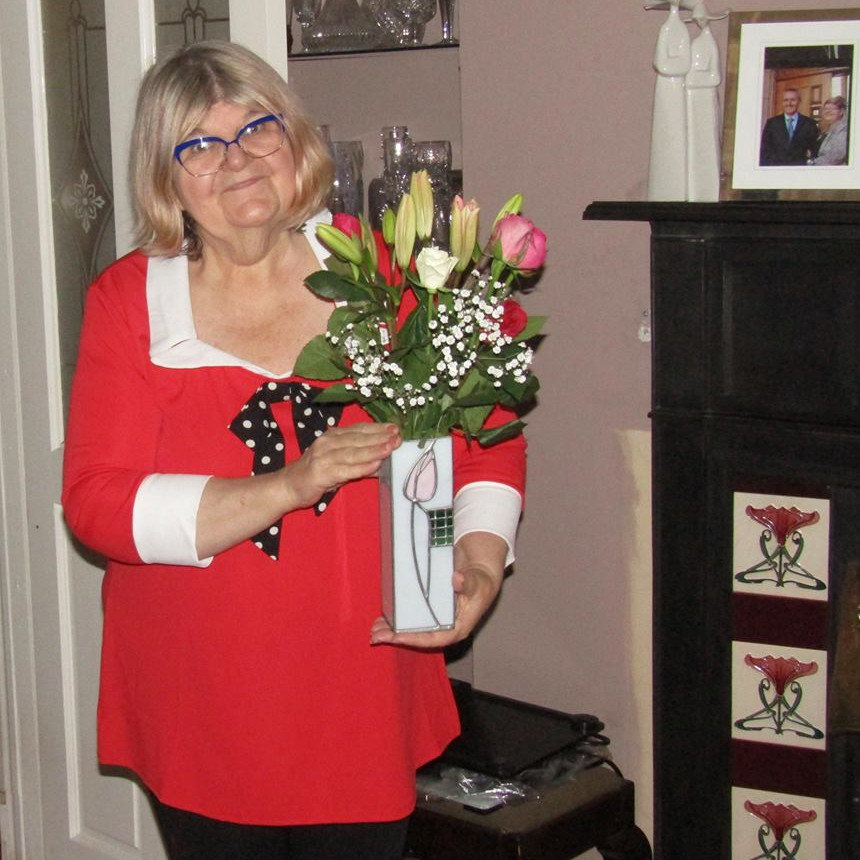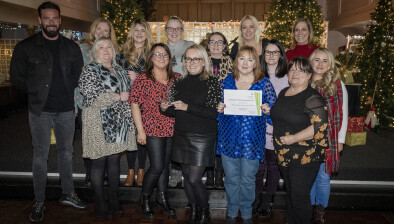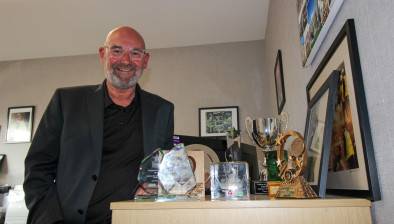Housing stalwart Geraldine Baird on overcoming depression
Geraldine Baird MBE, a founding member of Rutherglen and Cambuslang Housing Association, has opened up to Scottish Housing News about her long battle with depression, her gratitude towards her colleagues for their understanding and her hope that her experience can encourage others to seek the help they require.

Geraldine Baird MBE
A well-known figure in the Scottish housing sector, Geraldine Baird co-founded Rutherglen and Cambuslang Housing Association in 1980 in order to save many of the tenement properties in Rutherglen that had been scheduled for demolition.
Geraldine was chair at the Association for over 30 years and still holds a seat on the committee today.
In 1988 she was the oldest graduate trainee from the Scottish Special Housing Association (which became Scottish Homes) at 38 years old. She also started North View Housing Association in Castlemilk in 1993 and was housing manager there for 20 years.
Her efforts were even recognised by the Queen was she was awarded an MBE for housing work in 2004.
But however much joy she gained in her work, Geraldine recalls a period when she began to notice small changes that something wasn’t quite what it was. Geraldine wasn’t herself, though she couldn’t quite put her finger on what it was. She had suffered a heart attack while on holiday in Portugal a couple of years previously so anything out of the ordinary was often, and quite understandably, attributed to having to recover from such a traumatic experience.
“Staff at community-based housing associations know each other so well because you are there for years. You become a family of workers.”
Months passed before she knocked on the door of Euan Anderson, her director at North View Housing Association, and admitted that something wasn’t right. Soon after she was diagnosed with depression.
Having been formally signed off work for an initial period of 13 weeks, talking therapy sessions and a prescription for anti-depressants soon followed, a mild version of which she takes to this day. The weeks turned into months as the illness took its hold and it was around a year before Geraldine was able to resume her duties.
“One of the problems with my episode was that it should’ve been picked up by me earlier,” Geraldine says in hindsight. “I was affected for three years really badly and the few years afterwards were bad enough. Catching the illness early is vital.”
Easier said than done for most people. But Geraldine maintains that her working environment was a key factor which prevented her from suffering in silence for even longer. Small changes in her behaviour were picked up by colleagues. Her renowned open door policy was replaced by a closed door. A physical barrier appeared between herself and everyone else.
“Staff at community-based housing associations know each other so well because you are there for years. You become a family of workers,” she recalls. “I always had an open door policy to anyone who wanted to talk but more and more I found myself closing the door. This may seem like a small thing but its things like this that are key to an earlier intervention.”
Looking back, Geraldine thinks it could have been as long as a year that she was suffering before she took the first crucial steps. While the illness did not have a direct impact on her day-to-day duties, she admits that it did take its toll.
Geraldine says: “My decision making ability wavered and I felt constantly tired. It was frustrating because I was always able to make my mind up without hesitating. It’s especially worrying working for a small organisation because you feel you are letting people down.”
“When you are in a black hole you don’t want to be reminded of what you are not doing.”
Any perceived drop in performance from Geraldine would not have been down to a lack of effort, as her colleagues could testify. Days after her heart attack she was making calls from outside the hospital in Portugal regarding an eviction back in Glasgow.
As a result Geraldine is confident that outcomes were not affected at any point throughout this period, though in typically modest fashion she maintains this had a lot to do with “having a good team” and “effective organisation from the management”.
Indeed one of Geraldine’s motives for coming forward was to highlight just how well she was treated by staff and management at both housing associations.
“Euan, who had encouraged me to see a GP in the first place, handled the situation really, really well as he trusted me enough to let me deal with it however I felt necessary,” she said.
Geraldine said that Dave Anderson, the director of Rutherglen and Cambuslang Housing Association, “was equally caring and supported me when I wanted support. For long time I completely closed down but they were both terrific”.
She added: “The pay I received when I was ill was so generous too, people may not realise how good the terms and conditions are at a housing association. It really enabled me to get back on my feet.”
Geraldine feels strongly that the way her situation was handled is a reflection on just how good community-based housing association committees and managers are. An approach summed up perfectly by Dave Anderson whose parting comment to Geraldine as she began her absence from Rutherglen and Cambuslang Housing Association was simply: “We’ll be here when you come back.”
This sentiment was far from exclusive to the management as staff from both associations played their part in Geraldine’s recovery, as she remembers: “I never once experienced anything other than empathy and sympathy. If anything I felt a self-imposed guilt because I knew that others were having to work harder as a result.
“My colleagues were great because they would visit for a cup of tea when they can but would never talk about work when they were around me because they knew how much I cared about it.
“When you are in a black hole you don’t want to be reminded of what you are not doing.”
However supportive the people at the organisations were, was Geraldine ever worried about losing her job?
“Never. The thought wouldn’t have crossed my mind. On reflection though I was older at the time and had a successful career behind me. I worry for anyone younger than me who doesn’t have the career experience to fall back on. How do young people explain such a gap in their CV. Could smaller organisations see taking on someone with a history of mental health issues as a risk?
“There is a light end of tunnel. If I can help just one person recognise the signs earlier then this will all be worth it.”
And it’s this concern for others that has also encouraged Geraldine to speak out as she seeks to use her experience to raise the profile of mental health.
“There’s a real stigma around depression I feel as many can see it as a weakness or that it reflects your abilities when it doesn’t. I had good marriage, successful career and even received the Robina Goodlad Inspirational Award. It could happen to anybody at any time.
“Attitudes are changing though and people should not be afraid to open up in the workplace and get help before the situation gets as bad as mine.”
Geraldine is more than aware how positive her experience was with regards to her workplace but she still feels more can be done within the housing sector to help those in her situation today.
“I don’t think we should wait until someone choses go to management with their concerns, organisations should be more proactive and have specific policies and strategies to deal with mental health,” she says. “Associations need to ensure they have a culture which is supportive of mental health and make people aware that their career prospects will not be hampered if they come forward.”
Now fully recovered and looking to contribute more to the housing association movement, by sharing her experience Geraldine’s main hope is that she can encourage someone to get the help they need sooner rather than later.
“There is a light end of tunnel. If I can help just one person recognise the signs earlier then this will all be worth it.”
Catch up with the rest of the Scottish Housing News International Women’s Day feature here.






